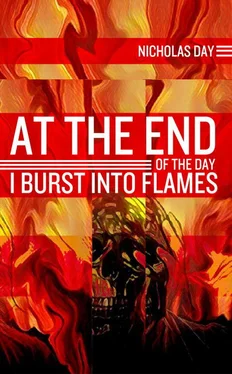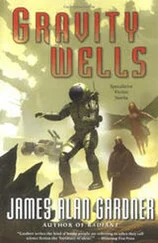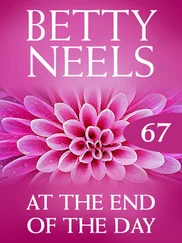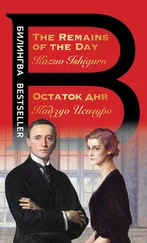“Love is nothing but trouble. And pain.”
“Maybe that’s the way it is for you.” I say. “Because you are always on the other side of the curtain, looking in, you can only see the pain. But you don’t see what’s inside. Not while we are alive.”
“I won’t let you remember her name. Why should I?”
“You could tell me.”
“No, it’s not good enough,” Death says. “I had to change the way you see her. I had to reinterpret her, so you could see her for what she really is.”
“You’re speaking in riddles,” I say.
“We can have something and at the same time know what it is to have nothing at all. Love is the confirmation of that, because when we love someone we love their presence and their absence.”
“Love is better than that.”
“Love is no more than another commodity. It tricks you into believing you have everything, but in the end it leaves you with nothing. It is loneliness incarnate. I couldn’t let you fall into that trap.”
“You can’t make those kinds of decisions for people.”
“By giving you pain I’m saving you from it.”
“Maybe love is a pain that I want to have,” I say. “Maybe that is what we are all really searching for. Loneliness. Maybe you need to feel that pain to know you were ever happy at all.”
“You really think that?”
“I don’t think anything. I don’t have answers. All I can do is tell you how I feel.”
“And you would rather feel love’s inevitable pain, than be free of it?”
“Yes.”
“Do you read much poetry, Firecracker?”
“No.”
“Did you know that poetry has to be read in order for it to survive?”
“Enough riddles, Death.”
“No. This isn’t a riddle. If someone writes a poem and no one reads it, then that poem dies. You have to give yourself to the poem in order for it to live. You have to experience it to make life.”
“Poetry won’t bring her back to me.”
“Of course it will.”
“Are you being serious?”
“People have to experience other people to really live, and there is no experience so intimate as giving life, whether it is to flesh or to words. After you danced together, there was poetry. Search your mind and she will live in those words.”
“Thank you,” I say.
“I want to help you as much as I have to hurt you,” Death says.
“I love you, too.”
I can no longer remember her name.
But we met when I was fifteen. We were both freshmen in high school. We got to know each other at a theater camp that year. She was an only child. Lived with her aunt.
Her mother had killed her dad one night over dinner, about a year earlier.
She was still going to therapy over it. Not that she was crazy or anything, but she was traumatized. She would talk about it like it happened to someone else. She would tell me about dreams where she talked to flies and how she thought the flies were her parents trying to speak to her from another reality. It may have sounded crazy to someone else, but I don’t know, I guess it wasn’t too different from how I’d talk about Dad.
She said she started writing poetry to help get over her emotions. It was a suggestion by her therapist, I think. She gave me two of her poems, Regretful and lonely getaway, during that year’s last week of school. She moved away and I haven’t seen her since. The last I heard, she was living on the West Coast. Married, I think, to someone very lucky.
I ask to see her hand, look at her thumb. I see our hands side by side, wondering:
about touching her hand tasting her palm with nails she laughs
snaking through her fingers hold her face as if I’m in Klimt’s Kiss
feel smooth features with my eyes pull her curved parts to mine
my hand runs up the back of her head as if coming up for air we kiss
“Your thumb is so small,” I smile, and look into her pillow-eyes:
Daydreaming
I drift
from reality on a boat
somewhere in my eyes.
I look
At patterns in tile
and shapes in the ceiling.
I notice
a large boy
in a bright red cotton shirt.
I wonder
what kind of fruit
people see me as?
I hope
that they have better taste
than myself
I hate
taking these trips
alone.
I can no longer remember her name.
But I remember that we had an art class with another student, Alex. She had always been infatuated with Alex, and of course she told me all about it. Alex was a pretty cool kid but we were young and she wasn’t ready for that kind of relationship. A lot of people weren’t ready for that, I guess.
We wanted to be ready, but we were fooling ourselves.
She wrote a poem about Alex. I don’t really know what to say about it. She told me that she didn’t want to use any punctuation in her thoughts. She believed that her thoughts were better expressed in a continuous stream.
She mentions an artist in the poem, Klimt. He was a painter. He did a lot of romantic, erotic pieces. That’s how she saw things, with a sense of artistic passion.
Lonely getaway was written during a history class or math class. I doubt that it is really of any importance to the poem. She was bored. It was, after all, just another high school class. She would space out if a teacher lost her interest. She really would stare at the ceiling sometimes. It was funny to me. She talked about daydreaming as if it were some kind of boat ride, like a vacation.
I think lonely getaway is her way of coming to grips with her parents. She used to tell me that, no matter what she thought of, it always came back to them. She felt abandoned by them. She was, really. Her mom is still in jail and they scattered her dad’s ashes. She lived with her mom’s sister until she turned eighteen.
She would tell me that she visited them, her parents, in her daydreams. It was the only place that they existed for her anymore. Her dad had no grave for her to visit and I’m not sure she ever spoke with her mom again. She told me that her parents had become nothing more than the sum of memories. Memories, she told me, had become something like a seaside town where she could go see her mom and dad.
I think that she tortured herself about her parents. I am pretty sure that the poetry was reinforcing how hurt and insecure she was. She wrote this in my senior yearbook:
“I think we ought to read only the kinds of books that wound and stab us… we need the books that affect us like a disaster, that grieve us deeply, like the death of someone we loved more than ourselves, like being banished into forests far from everyone, like a suicide. A book must be the axe for the frozen sea inside us.” –Kafka
And that was how we parted.
I think about her a lot. She’s the only person that ever made me laugh, truly and deeply. I wrote a poem for her that I ended up throwing in the garbage. Not giving that poem to her is one of my biggest regrets. I remember every line.
A body begs to be seen
for its curves to be fondled by the eyes
the air between us like velvet pressing water
no harm comes from a glance
And no matter how many times I see, it will always be the first
it will always be the most fantastic
a radiant, uncompromising grip on my attention
to miss this chance is like missing out on air or gravity?
Presence creates an undeniable pressure
In my voyeur mind, lost in vineyards of attraction
Читать дальше










